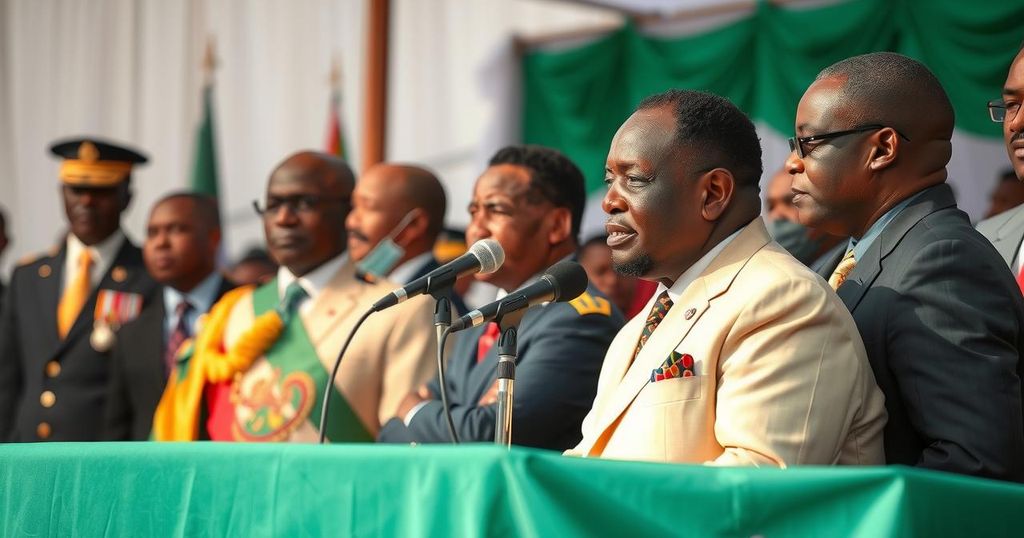Daniel Chapo was inaugurated as Mozambique’s president amidst significant protests led by opposition leader Venancio Mondlane. The election results have been widely contested, with reports of over 300 fatalities linked to unrest. Despite the opposition’s calls for ongoing demonstrations, some African leaders attended the inauguration, marking a contentious political landscape for Mozambique moving forward.
Daniel Chapo has officially taken his oath of office as the new President of Mozambique amidst significant opposition protests following a contentious election. Venancio Mondlane, the leader of the main opposition party, has rallied his supporters to continue demonstrations against the election results, which he insists were fraudulent. Mondlane, returning from exile just before Chapo’s inauguration, has vowed to “paralyze” the country through daily protests, claiming the administration does not seek peace.
A report from electoral monitoring group Plataforma DECIDE cites over 300 fatalities linked to unrest following the elections on October 9. Observations from international monitoring bodies, including the EU, indicated numerous electoral irregularities, leading to widespread dissent against the legitimacy of the election results. Amidst the turmoil, civil society organizations have urged the African Union to refuse recognition of Chapo’s presidency.
Despite the opposition’s protests and calls for continued unrest, Chapo received support from some African leaders at his inauguration in Maputo, including South Africa’s President Cyril Ramaphosa and Guinea-Bissau’s President Umaro Sissoco Embalo. Chapo expressed a desire for unity and stability, encouraging citizens to work together for the development of Mozambique.
As Chapo embarks on his presidency, the political landscape remains fraught with tension, and the future stability of Mozambique hinges on the resolution of these pressing disputes.
Overall, the inauguration of Daniel Chapo as President of Mozambique highlights the ongoing political strife and significant opposition to the election results, underscoring the challenges he faces in governing amid widespread unrest.
The political situation in Mozambique has been fraught with contention, particularly following the recent elections held on October 9, 2024. Daniel Chapo’s election as president has sparked considerable protests, led by Venancio Mondlane of the main opposition party, who argues that the election was marred by significant irregularities. Civil society groups have challenged the legitimacy of Chapo’s presidency, calling for national and international actors to refrain from recognizing him. The unrest has resulted in numerous fatalities and a firm commitment by the opposition to pursue their protests until their grievances are addressed, indicating a long road ahead for national reconciliation.
The inauguration of Daniel Chapo represents a critical juncture in Mozambique’s political climate, as his ascendancy to the presidency is met with substantial opposition and public unrest. Opponent Venancio Mondlane’s pledge to disrupt governance through continuous protests signifies an ongoing struggle for power and accountability in the country. While some African leaders support Chapo’s presidency, the demands for recognition from civil society organizations signal the potential for prolonged instability as Chapo attempts to lead a divided nation. The situation necessitates careful monitoring, as the response of the Chapo administration and the continuation of opposition protests will shape Mozambique’s future and the prospects for democratic governance.
Original Source: www.dw.com






